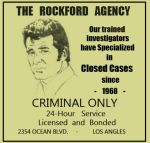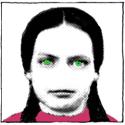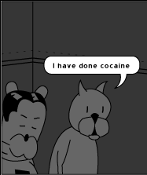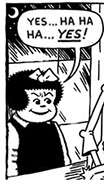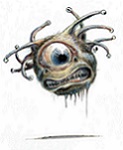|
Simian_Prime posted:Hmm... That's not something that would go over well for my players, I think. Guess I'll just have to make sure the credit rewards they get are great enough that advancement doesn't slow to a crawl. Or houserule it away, or make the trainers NPCs that they owe favors to or something.
|
|
|
|

|
| # ? Jun 1, 2024 01:38 |
|
Mimir posted:Luke Crane just put out Miseries and Misfortunes, a new book that expands 1981 Basic D&D for historical adventures in 17th Century France. Classes include Chaplain, Soldier of Fortune, Necromancer, and Urchin. This is full-on goofball retroclone poo poo. Lots of hirelings, finnicky formation battling, and party order required. I love enlightenment era so I love this. Probably too much questionable content for some tables - like, consider that Urchin is a 10 or 12 year old kid you force to come into a dungeon with you and then take 3/4 of their money. Funny substitute for halfling though! Also rules for bringing cannons down into dungeons. Because you totally would anyways.
|
|
|
|
JonBolds posted:Also rules for bringing cannons down into dungeons. Because you totally would anyways. Finally, my dreams of a tabletop version of Ultima 6 have come true!
|
|
|
|
Lightning Lord posted:Or houserule it away, or make the trainers NPCs that they owe favors to or something. A lot of people will just house rule it away. I personally like it - the idea that you go and find a trainer to improve your skills makes a lot of sense, while self training is time consuming and expensive (and may be practically impossible, depending on the skill and the character's level in it). Skill training can also be offered as a reward in and of itself (if the players didn't have the skill points spare, I would allow them to spend them in advance of levelling up if I offered a skill increase as a reward).
|
|
|
|
gradenko_2000 posted:Since today is Gary Gygax day, I wanted to ask if anyone has any strong opinions on Castles & Crusades, one of the last games EGG wrote for. By the time I got to scanning through I was already fairly cynical about LFQW and Fighters that only ever basic attack, and the whole SIEGE skillcheck thing felt a little too convoluted for what was essentially "let's try to convert roll-under attributes to an ascending system", but maybe there was something in there that's worth looking at. It's okay for what it is, which is one of the first systems to try and replicate an older version of D&D. Nothing particularly special about it beside that. Also, the authors really like their cheesecake art.
|
|
|
|
Thanks for the input, everyone! I think that Basic Fantasy RPG is just what I'm looking for.
|
|
|
|
Achmed Jones posted:Thanks for the input, everyone! I think that Basic Fantasy RPG is just what I'm looking for. Good luck, have fun! BTW hard copies of the books are available on Amazon for very cheap. Like around $3-$5, including Prime. http://www.amazon.com/gp/product/1503334945/
|
|
|
|
hectorgrey posted:A lot of people will just house rule it away. I personally like it - the idea that you go and find a trainer to improve your skills makes a lot of sense, while self training is time consuming and expensive (and may be practically impossible, depending on the skill and the character's level in it). Skill training can also be offered as a reward in and of itself (if the players didn't have the skill points spare, I would allow them to spend them in advance of levelling up if I offered a skill increase as a reward). I like it as a cost, but not as a time sink. If you look at the Silent Legions version, it's a cost for the training and two weeks of training time. I've always felt that time for training just takes away from the flow of the game. Better to hand wave it as "you've been working on these things via some trainer over the past why, and now you're graduating."
|
|
|
|
Byers2142 posted:I like it as a cost, but not as a time sink. If you look at the Silent Legions version, it's a cost for the training and two weeks of training time. I've always felt that time for training just takes away from the flow of the game. Better to hand wave it as "you've been working on these things via some trainer over the past why, and now you're graduating." Agreed - Thankfully SWN forgoes training time. I feel the same way about long healing times. Is there some purpose to these time sinks besides wanking over verisimilitude?
|
|
|
|
The idea was that you would have more than one character. Let's say you delve into a dungeon on Monday for a four hour session in which Bob the Fighter, whom you're playing as, takes some hits. Come Tuesday, you're about to play again, and then the DM says that only so-and-so much time has passed since yesterday's session, such that Bob the Fighter is still wounded and is sleeping it off at the inn. So instead, you bring out your second character sheet, for Rob the Cleric, and play as him instead. I don't know how many people actually practiced this, and especially nowadays I assume people simply handwave it so that the second session starts at whatever point-in-time is necessary for everyone to come back fully healed, but what I described above is why it took significant amounts of time for characters to heal, and especially that it had enough rules associated with it that it sounds like you were expected to track that passage of time (because you actually were). I also assume it created situations where people would experience the different characters regularly as they rotated through the classes.
|
|
|
|
I really like doing the multiple characters thing--it lets time be another resource you can spend, and is great for high-mortality games where it means you'll never completely be reset to zero if a character dies. That said, heal times sound super obnoxious in any system where a high level character fighter can end up having a dozen times as many HP as a low level thief.
|
|
|
|
Simian_Prime posted:Agreed - Thankfully SWN forgoes training time. I feel the same way about long healing times. Is there some purpose to these time sinks besides wanking over verisimilitude? It just means that you can't instantly heal mid adventure by having a night's kip or instantly learn a skill mid adventure when you never expressed an interest in learning it prior to that. Pretty much every system with heal times allows those times to be shortened by spending time in the care of a decent medic (and most also have a means of bypassing said heal times entirely) - and a period of down time spent on recovering after taking a severe beating or on improving the party's skills needn't break the flow of a campaign.
|
|
|
|
You know that's actually a good point: in the 5e thread there was a bunch of discussion about how to modify how "Long Rests" work so that players couldn't completely deflate the challenge of fighting a Lich deep in a dungeon if they managed to engineer a way to have an 8-hour rest inside a room and get back everything. One of the brighter ideas was that "sleeping for 8 hours" wouldn't count - you had to be able to relax for weeks at a time in a really really safe place. And yet here was OSR D&D all this time having already written an old version of the same idea.
|
|
|
|
So I'm considering running a game of Silent Legions, but want to have a decent location for the starting region. anyone know a good source for real map images, preferably of the United States, that I could use for the game? I'm looking for something more than a road map, but beyond road maps and satellites I'm coming up empty.
|
|
|
|
The Google Earth desktop app does a bunch of other projections and stuff that are probably what you're looking for.
|
|
|
|
hectorgrey posted:It just means that you can't instantly heal mid adventure by having a night's kip or instantly learn a skill mid adventure when you never expressed an interest in learning it prior to that. Pretty much every system with heal times allows those times to be shortened by spending time in the care of a decent medic (and most also have a means of bypassing said heal times entirely) - and a period of down time spent on recovering after taking a severe beating or on improving the party's skills needn't break the flow of a campaign. One thing I do like about healing times ( and this is specifically time for recovery after being revived from 0 HP) is that the degree of time necessary depends on the Tech level of whichever world you're in while convalescing. So recovery in a low-Tech world takes months, while a high-Tech world can heal you the same amount in days (or shorter if pretech is involved). Gives parties a nice impetuous to travel.
|
|
|
|
gradenko_2000 posted:You know that's actually a good point: in the 5e thread there was a bunch of discussion about how to modify how "Long Rests" work so that players couldn't completely deflate the challenge of fighting a Lich deep in a dungeon if they managed to engineer a way to have an 8-hour rest inside a room and get back everything. While it's not realistic, the 8-Hour Long Rest refreshing most health and resources is definitely something I prefer over other ideas, other ones feel too clunky and open to abuse by bad DM's
|
|
|
|
I have always felt that with hit points being abstract as they are, heal times in D&D have always been a mess, because essentially a fighter with 50 hit points taking 5 damage is the same as a fighter with 10 hit points taking one damage and should heal at the same rate. Therefore I always multiplied hit points regained by natural healing by the level of the character. Don't read into it to far of course because then you start to ask why magic healing get less effective as the person being healed gains levels.
|
|
|
|
drrockso20 posted:other ones feel too clunky and open to abuse by bad DM's  ~get you~ ~get you~ . .
|
|
|
|
remusclaw posted:I have always felt that with hit points being abstract as they are, heal times in D&D have always been a mess, because essentially a fighter with 50 hit points taking 5 damage is the same as a fighter with 10 hit points taking one damage and should heal at the same rate. Therefore I always multiplied hit points regained by natural healing by the level of the character. Don't read into it to far of course because then you start to ask why magic healing get less effective as the person being healed gains levels. SWN and Silent Legions uses that very same metric, of level affecting the healing, and I think it's a great mechanic.
|
|
|
|
FRINGE posted:Be a DM instead of worrying about the boogie-man DMs that might I've had amazingly bad luck trying to get a game off the ground in the past(between 2008 and 2013 I tried about 20 times with at least 8 different systems to run a game and none of them got past character creation), although I'm hoping to try and get something off the ground before the end of the year(currently looking to be either ACKS or DCC, but there's a couple of other candidates as well) Also my luck in campaigns hasn't been much better, haven't played a tabletop RPG since early 2012, and of the various campaigns I've been in, most were varying degrees of mediocre(doesn't help that my friends liked running BRP/CoC a lot which I've found over the years to be an incredibly dry, bland, and not very fun system), best was a 4E campaign run by a friend who was kind of a dick(he'd talk about me behind my back on forums instead of actually talking to me about his issues with me and/or my character) and that ended with a whimper(and the following 2E AD&D and D6 Star Wars games were even worse)
|
|
|
|
drrockso20 posted:I've had amazingly bad luck trying to get a game off the ground in the past(between 2008 and 2013 I tried about 20 times with at least 8 different systems to run a game and none of them got past character creation), although I'm hoping to try and get something off the ground before the end of the year(currently looking to be either ACKS or DCC, but there's a couple of other candidates as well) I feel your pain there. As for your comment regarding bad DMs, while bad DMs can be a problem, they're a system agnostic one. A bad DM can make any game feel terrible, just as a good DM can make any game (so long as it isn't utterly broken) fun to play - I would argue that a really good DM might even be able to make FATAL playable (though I don't see why they'd want to). Some DMs are dicks, and they will be dicks regardless of the system. To take a game like Stars Without Number as an example, a good DM will take a look at healing times, and realise that if the party have a competent medic, the time taken to travel from one system to another will generally be enough to heal most if not all of the damage that's been taken, but a good night's kip won't be enough for someone to go from nearly dead from a nasty gunshot wound to perfect health. It gives violence a short term consequence, and gives the party a reason to search for non-violent solutions to problems - or at least, solutions where they aren't on the receiving end of any violence. Occasionally, a good DM might actually work an adventure around things like training times or healing times - while you're training, a plot hook happens, or while you're healing up in hospital, you see a plot hook. Or, these might be given a session of down time to deal with. A session spent mostly taking care of down time stuff can be entertaining in its own right - particularly if it comes after a particularly intense session, as it gives the party a chance to catch their breaths and it means that more intense sessions later on will be more enjoyable.
|
|
|
|
remusclaw posted:I have always felt that with hit points being abstract as they are, heal times in D&D have always been a mess, because essentially a fighter with 50 hit points taking 5 damage is the same as a fighter with 10 hit points taking one damage and should heal at the same rate. Therefore I always multiplied hit points regained by natural healing by the level of the character. Don't read into it to far of course because then you start to ask why magic healing get less effective as the person being healed gains levels.
|
|
|
|
Littlefinger posted:You can even tie magical healing into it as well. Just derive a value for each character (say, 1/4 of their max. hp) and make every healing effect reference it. So a bog-standard healing could restore 1d6+(1/4 max.hp) while some powerful magics could heal 2*(1/4 max.hp). I think this is also a good idea to get out of that weird thing D&D does with Clerical healing where it's not very impressive at all until you get to Heal/Cureall. Although in a way it's also tied into the whole "camping in a dungeon vs resting in a town" dichotomy: if you get back so many spell slots after an 8 hour rest*, and you don't have the option of taking multiple 8 hour rests inside a dungeon, you can have the Cleric blow them on healing spells for the Fighter to get them back in fighting shape that much faster, although obviously at the cost of the Cleric having less spells to work with. It's a creates more of a nuance to the whole "we passed all the wandering monster and standing guard checks, now we're back to full health AND we have all our spells" * There's this rule buried in the AD&D 1e DMG that I thought was interesting: quote:Spell recovery, whether cleric/druid or magic-user/illusionist, requires about the same period of time. In order to pray and meditate for a new spell to replace one used, or in order to study and memorize such a spell, it is necessary that the spell-user rest and revitalize his or her mental faculties. Whether one or more spells are to be regained, the minimum time required for complete rest (usually sleep) is that required for the highest spell to be recovered. Minimum rest periods are shown below: gradenko_2000 fucked around with this message at 10:28 on Jul 30, 2015 |
|
|
|
I'm looking to start an AD&D 2e game in a month or two with a group of friends, all of whom have played AD&D before. Now, what I'd like to know is how one makes a properly balanced AD&D encounter. It's far less clear than later editions with their whole ECL thing. I've run a couple AD&D games before but winged it, which generally left them either without much challenge or a near TPK. Any advice on this? How about setting an XP value to an NPC? The guide listed in the Monstrous Manual is not very helpful for that.
|
|
|
|
Chronische posted:I'm looking to start an AD&D 2e game in a month or two with a group of friends, all of whom have played AD&D before. Now, what I'd like to know is how one makes a properly balanced AD&D encounter. It's far less clear than later editions with their whole ECL thing. I've run a couple AD&D games before but winged it, which generally left them either without much challenge or a near TPK. Any advice on this? AD&D is pretty swingy, so balance can be a bit tricky. I usually try to match monster Hit Dice to the average party level for wandering/non-boss encounters and bump it up by 2-3 for bosses. More than Hit Dice that makes encounters deadly is the weird poo poo some monsters can do, like stat damage and level drain, so I count anything like that as a HD for my formula. I also treat each die past the first for "number appearing" as a HD as well, and sometimes adjust those dice if I want more or less of a specific monster appearing. For NPC xp, I use PHB total for the class and level. If it's a big bad/important story character, I bump it up by 5-10% depending on how central to the game they are. The 2.5 ed DMG is a little better for giving info on xp by HD/NPC, but not great. I had a 70s version back in the day with all random tables and crap, so I mostly just tried to look at the stats of monsters from modules and boxed sets to gauge encounter power. I typically start my players out at level 3 and have them reroll any 1s they get for HP because level 1 is the worst for that "breeze through or die" AD&D curve. Another house rule I've heard of is letting players get their con score plus what they roll for hit dice to make HP a little more fair. There's a reason fudging dice rolls on occasion is encouraged in this edition, so don't feel bad if you have to do it here and there.
|
|
|
|
ScaryJen posted:AD&D is pretty swingy, so balance can be a bit tricky. I usually try to match monster Hit Dice to the average party level for wandering/non-boss encounters and bump it up by 2-3 for bosses. More than Hit Dice that makes encounters deadly is the weird poo poo some monsters can do, like stat damage and level drain, so I count anything like that as a HD for my formula. I also treat each die past the first for "number appearing" as a HD as well, and sometimes adjust those dice if I want more or less of a specific monster appearing. Yeah the real trick with AD&D monsters is the wide variance in their unique little powers. One might have a form of grapple that lets them do automatic damage until removed, one might have a unique poison that paralyzes the target if they fail their save vs poison, but it paralyzes for 1 TURN which is brutal. All those things mean the XP value doesn't mean as much as it should, and makes me wonder how the hell they determined poo poo back in the day. I suspect it was entirely guesswork. So a level 2 mage would give 2500 xp split through the party? That doesn't seem right, as a level 2 mage MIGHT get a spell off before dying, but probably would just die in 1 hit. A level 2 ANYTHING isn't worth the amount of XP it took to get to that level. I used the rolling method used in Red Death, all stats are 8 and you roll 7d6 which you can add in whatever combination you want as long as it doesn't end up breaking racial maximum. Works pretty well for allowing you to be whatever you want as long as you don't roll completely trash
|
|
|
|
Pre-3rd Edition encounter design is more of an art than a science*, especially since one of the basic assumptions was that if entered an encounter that was way out of your league (whether you knew it yet or not) you'd either flee or engineer some roleplayed solution to get out of it or even the odds. That said, there are some general principles to keep in mind: * You can start with the HD of the monster - in general they represent the "level" of the monster, so for a level 1 party you might not even want to use monsters that have single full Hit Dice, because it's a function of how well they can hit the players as well as how much damage they can absorb from the players * Look at the AC - for example, with level 1 players having a THAC0 of 20 and 18 STR, an AC 6 monster is only going to be hit about 40% of the time, so anything better might be frustrating to fight * Look at the action economy - you generally want 1 monster per player to even begin to have a chance at a decent fight. Monsters with multiple attacks and/or special abilities can get around this if they use them on different initiative counts. Something like 2 Ghouls minus the paralysis might be a fairly challenging encounter for a group of 5 level 1's: It's got AC 6, 2 HD/THAC0 19, and three attacks (1d3/1d3/1d6). Spread those attacks around in between player turns and they'll absorb something like 3-4 solid hits before going down. Morale checks and roleplayed behavior will also give you a potential out. * Insert joke here about how Challenge Rating is still more art than science, yukyuk
|
|
|
|
Chronische posted:Yeah the real trick with AD&D monsters is the wide variance in their unique little powers. One might have a form of grapple that lets them do automatic damage until removed, one might have a unique poison that paralyzes the target if they fail their save vs poison, but it paralyzes for 1 TURN which is brutal. All those things mean the XP value doesn't mean as much as it should, and makes me wonder how the hell they determined poo poo back in the day. I suspect it was entirely guesswork. Yeah, looking back on it, my remembered math about killing classed NPCs may be off. They usually didn't come up in my games unless they were a boss type character with at least a bit of backstory and some magic gear. I may have done it more as a "level up" button for completing story arcs, it's been awhile. I haven't done a proper campaign in many years, just a few pre-done adventures over roll20 here and there in the past few months. Looking at the 2.5 DMG table for XP per Creature HD, they have a whole slew of modifiers that are more fiddly than mine. They peg a level 2 mage at probably 4-6 HD worth of xp depending on gear and spells known, and giving 175 to 270 XP. That seems pretty low to me for a classed NPC you've come to blows with, but would definitely fit for fighting a group of bandits with a magic user or something. I never played Red Death, but that's a good way to do stats. We always did 4d6 drop low die, reroll 1s. Man, I love me some 2nd edition, but it sure gets janky at times.
|
|
|
|
I kinda want to see someone do a 2E clone that integrates a lot of the weird optional stuff, and puts a lot of focus on things like Specialist Mages and Specialist Priests among other things
|
|
|
|
ScaryJen posted:Yeah, looking back on it, my remembered math about killing classed NPCs may be off. They usually didn't come up in my games unless they were a boss type character with at least a bit of backstory and some magic gear. I may have done it more as a "level up" button for completing story arcs, it's been awhile. Red Death has some neat ideas but holy poo poo is magic garbage there. If you've ever played Ravenloft you know about Dark Powers checks: Imagine normal dark powers rules but also ANY spell causes one AND each spell takes 10x as long to cast AND you have to make an ability check at the end to actually cast the spell. Needless to say, just being a dude with a gun is WAY more valuable to the party, since a spellcaster is pretty well guarenteed to start failing powers checks at some point. Where in the AD&D 2e DMG is this table? I'd love to use it, it would be very helpful for stuff I'm doing. Gotta stat out important NPCs! Presumably you could use it to slap class levels onto monsters as well, which is something that AD&D didn't do all that often. drrockso20 posted:I kinda want to see someone do a 2E clone that integrates a lot of the weird optional stuff, and puts a lot of focus on things like Specialist Mages and Specialist Priests among other things All Wild Mages all the time, baby! No non-wild mages allowed. Specialist priests are kinda ehh, though. Their difference has to do with a custom built faith which is generally either hilariously OP or garbage. What I'd like to see more of is a resurgence in the old campaign settings. More Planescape, Ravenloft, Dark Sun, or Spelljammer would be just great. While I love AD&D, it's so much easier to get a party for 5e, but homebrewing isn't to my taste for something as big as trying to recapture the feel of one of those campaign settings.
|
|
|
|
Chronische posted:Red Death has some neat ideas but holy poo poo is magic garbage there. If you've ever played Ravenloft you know about Dark Powers checks: Imagine normal dark powers rules but also ANY spell causes one AND each spell takes 10x as long to cast AND you have to make an ability check at the end to actually cast the spell. Needless to say, just being a dude with a gun is WAY more valuable to the party, since a spellcaster is pretty well guarenteed to start failing powers checks at some point. Table 31 and 32, page 69 in this version of the DMG . In the Experience section. Geez, I can kind of understand the logic of those magic rules in an alternative Earth setting, but that's pretty balls. There was a class I remember from Ravenloft that was sort of like a scary bard wizard, and you had to make a powers checks that scaled by level every time you levelled up. Again, there were good reasons poo poo got house ruled so much in 2nd edition. I'm sort of with you on the campaign settings. They were what really got me into D&D, but I've never been impressed by the official conversions between editions. I'd like to see Wizards start putting out stuff where you have a self-contained game and campaign world with a few pet mechanics, but they're not even writing their own supplemental books anymore. They may have flaws, but stuff like Numenera and 13th Age really scratch that "campaign world" itch for me. I'd like to see more of it. Especially by someone with some true-blue fiction writing chops/experience (a gal can dream).
|
|
|
|
Covok posted:My guess is that they really didn't like how, in their view, the monk didn't "fit in" with the western fantasy motif D&D goes for and excluded it. Then, under some form of pressure, included it, but passively aggressively nerfed it. Megaman's Jockstrap posted:And also AD&D rules are not completely awful or unuseable (although they are bad in a lot of ways), it was the way they were applied. Look at the original Monster Manual 2 and you'll start to get some of this philosophy - plenty of dungeon "gently caress yous" scattered all around, including monsters that look like dungeon floors and engulf the player, monsters that look like stalactites and fall on the players, monsters that look like cloaks and strangle the players, and worms that live in the garbage and, if the character sorts through the trash/refuse looking for treasure (which a lot of modules have!), burrow into their skin and dig into their heart and kill them. And this was in an official product! The tacit message behind all this (and Tomb of Horrors and such), of course, is that the DM should be loving with the players and making the game as Fantasy Vietnam as possible. ...which is why I'm in favour of skill/ability checks. Exploration shouldn't be reduced to a rote list of checks, but checks can substitute for endless and tedious descriptions for exactly how the PCs are doing something. I actually learned this for myself while playing 4e, when the other players wanted to describe every single detail of approaching a thieves' hideout from a blind alley and climbing up the wall to get through the second-story window. Don't describe how you're placing your toes on the windowsill, dude. That's what the Thievery skill is for. Megaman's Jockstrap posted:I mean, I really like Al-Quadim but it just doesn't give a gently caress about players at all. One of the mage kits is Sh'iar, you're a cool mage guy with a mini-genie helper, but you have a limited amount of spell slots compared to a regular Wizard and you have to send the helper out to get spells for you and it takes him like 10 minutes per level of the spell or something crazy! So you're just really good at overcoming DM obstacles by having him fetch Passwall or Fly or whatever when there's no time pressure but during a fight you kind of suck rear end, which means more skulking and more ambushing and such. Not exactly 1001 Arabian Nights, here.
|
|
|
|
Our group is inbetween games at the moment and I was thinking of running a probably short D&D Basic game running this version of the rules. I also have the Rules Cyclopedia as well, but I'm not entirely sure whether to run with it or not or just how to choose what rules to actually use out of it. It seems pretty lengthy and daunting and I'm not sure if the more casual people in the group would want to a couple hundred pages of various rules. I'm planning on kinda basing my game off of Final Fantasy Legend. We only play 3.5E and 4E, so this is a huge departure for everyone including me. I'm going to allow people to roll 6 3d6 and choose where their stats go for a little flexibility and allowing There's Always A Chance's "roll under your ability scores to do a thing" rule. I also plan on making the game pretty lethal. You die? Cool, here's another sheet, you come in the round after you finish filling it out. Sort of tempted to say "You guys have 100 characters to make it through the dungeon" or something like that. I'm not sure what to do with the more resource-based rules since managing food, weight, light, etc. may get annoying. Would it take too much out of the game to kinda handwave it? I understand running oldschool D&D, especially combat encounters, is not an exact science. Is there anything I should keep in mind when crafting encounters and running the game? There's also likely going to be a large number of players, like 5-7. Ederick fucked around with this message at 00:32 on Aug 1, 2015 |
|
|
|
do reaction checks and morale checks, don't just jump into initiative-and-combat unless it's against like giant wasps or something.
|
|
|
|
Someone needs to figure out how to do a Monk that follows the Fist of The North Star model of Martial Arts(or perhaps Hamon from JoJo) right from Level 1 without it being broken(4th Edition has so far been the only edition to really pull this off, although some attempts I've seen for DCC come pretty close)
|
|
|
|
Chronische posted:Now, what I'd like to know is how one makes a properly balanced AD&D encounter. gradenko_2000 posted:more of an art than a science Regardless of trying to come up with a CR system, make yourself a couple sets of (barely complete) characters (like a set of lv1, and a set of lv 5), and some easy to crank out monsters (like a set (each) of kobolds, orcs, hobgoblins, ogres, trolls), and then smash them against each other and get a feel for the numbers. After that mix in a single leveled "leader" to the groups and do it again. After that add a single shaman/mage/priest and do it again. After that bit of homework you'll have a good feel for level vs thac0 vs ac vs HD, and then you can play with some special effects vs saving throws on some creatures. (Like ghouls.) Throw a level 1 fighter against 2 orcs. Throw a level 3 fighter against 2 orcs. Throw a level 1 wizard against 2 orcs. Throw a level 3 wizard against 2 orcs. Etc... Repeat for level 5 and 9 and see what you see. I'm super tired or Id be more thorough. The main point is slam the things at each other via the dice and get a hands-on feel for where the challenging vs sure-death is. Also remember that a single +1 means something in 2e. The "huge powerful looking" hobgoblin might be assigned a +1/+1 as a tough-guy str bonus. OTOH the four orcs with the "beat up looking swords" may only do 2-5 damage with their crappy swords (instead of 1d8). As long as you have a good idea of the numbers you can play with them on the fly to keep pressure on the players without ruining them. Beware of low AC enemies with new PCs though. Even if the players win its a tedious exchange: *miss**miss**miss**miss**miss**miss**miss**miss**miss**miss* YOU WIN! Ac 6-10 is plenty tough on a (normal) 1st level team. (This is of course ignoring the elven archer kit  ) )So yeah. What gradenko_2000 said basically. 
|
|
|
|
If player death is going to be a thing, then just use the random encounter tables right out of the game, throw out/modify anything that's a lovely save-or-die like rot grubs or the crab spider poison, use reaction rolls, use morale checks, and inform people very directly that there is no such thing as encounter balance.
|
|
|
|
gradenko_2000 posted:modify anything that's a lovely save-or-die like rot grubs Potentially lethal is fine as long as the final actions/chances are taken by the players (youve got X rounds before Bad Thing), but SURPRISE! direct death should have warning signs in front of it. ("The High Priest of Death is known for using Divine Symbols that strips a mans soul right out of his body.")
|
|
|
|

|
| # ? Jun 1, 2024 01:38 |
|
Ederick posted:Our group is inbetween games at the moment and I was thinking of running a probably short D&D Basic game running this version of the rules. I also have the Rules Cyclopedia as well, but I'm not entirely sure whether to run with it or not or just how to choose what rules to actually use out of it. It seems pretty lengthy and daunting and I'm not sure if the more casual people in the group would want to a couple hundred pages of various rules. Moldvay basic is a fine, rules light game, but Rules Cyclopedia isn't bad either now that Dark Dungeons exists. I understand the game inside and out and I can barely read the actual factual RC. You can get a giant, as in page size not number, paperback of the thing from lulu for under 20 bucks and it's easy. The players won't even need to read 3/4 of the book. Maybe give Mentzer D&D a shot, then look at the RC again after you have a good grasp of the central rules presented in B/E. Mentzer red box is hands down the best D&D teaching tool too.
|
|
|


